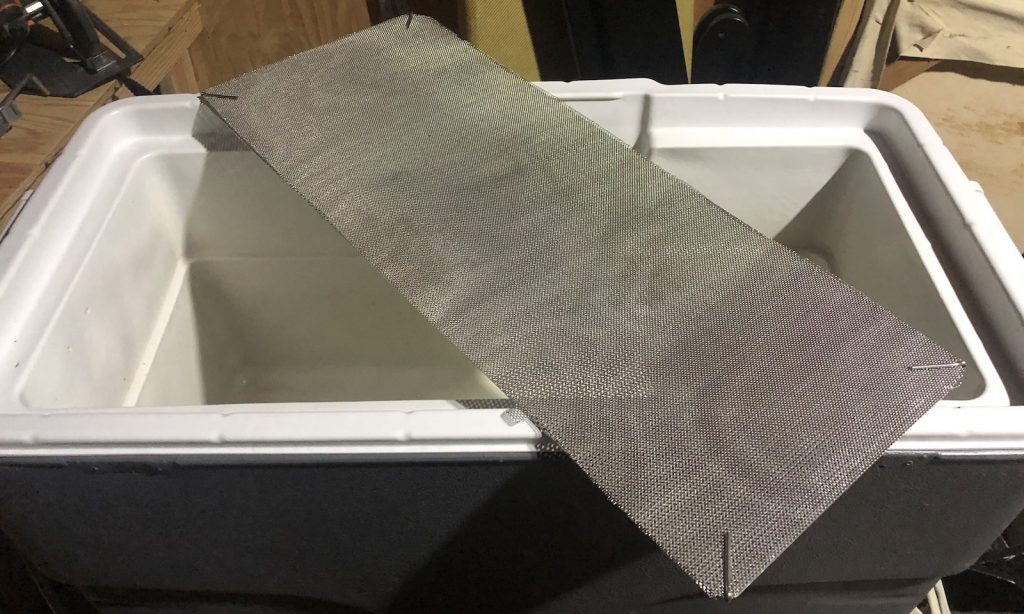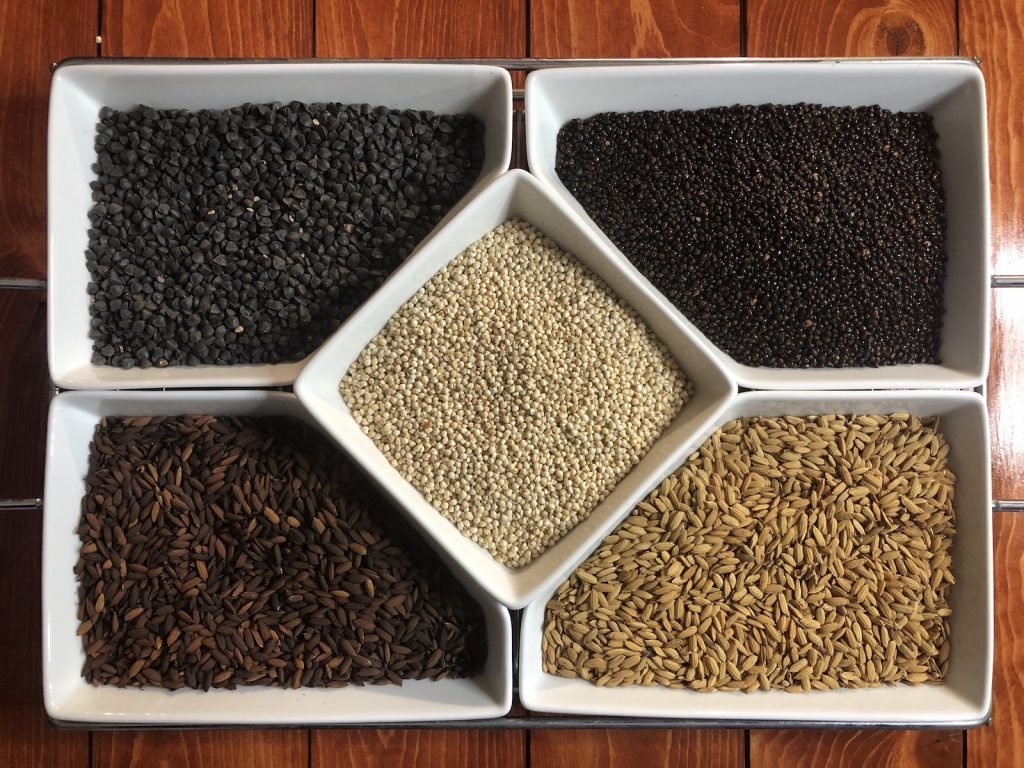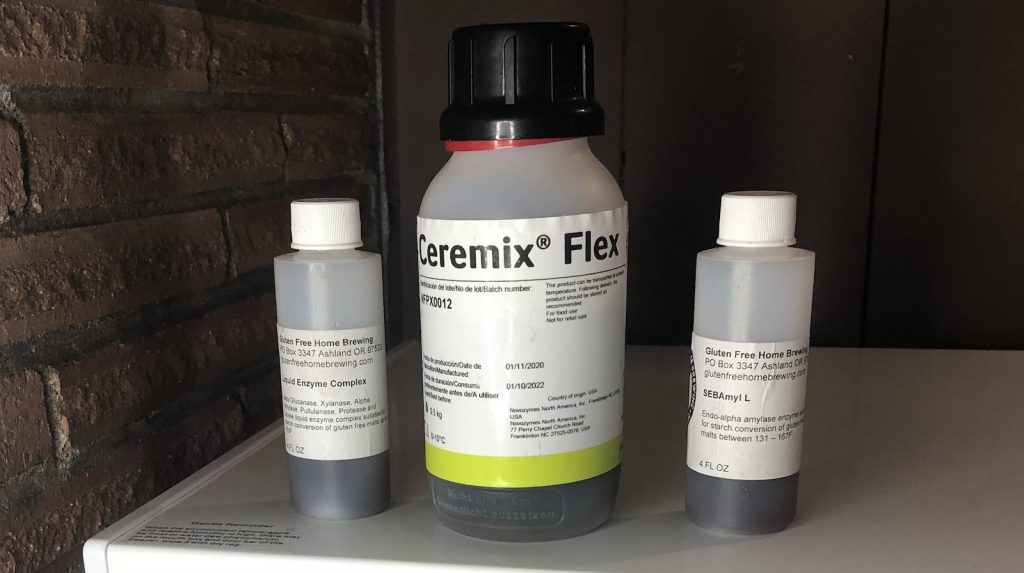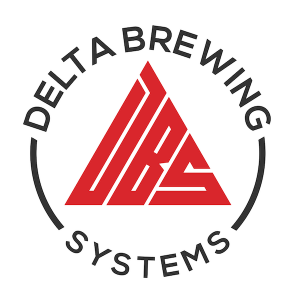Author: Cale Baldwin
The brewing bug hit after I was unable to drink “regular” beer due to a celiac disease diagnosis. It was difficult to come to the realization that I might have to become the wine or cider guy (not that there’s anything wrong with that). What I didn’t know at the time was that gluten-free brewing was a popular emerging trend with many breweries opening up throughout the western United States and beyond.
In the Pacific Northwest, I’m blessed with several dedicated gluten-free commercial options with Ghostfish Brewing right here in Seattle. However, going to buy beer at a store would be an experience where a very limited selection would be in a corner next to the kombucha and ciders, if there were any choices at all. This limited variety eventually led me to the idea that perhaps I could brew my own gluten-free beer. My brewing journey over the last several years from that moment has been quite an odyssey.
Why Brew Gluten-Free?
Most brewers don’t start out wanting to brew gluten-free, they usually make their way to brewing gluten-free due to a celiac disease diagnosis or some sort of gluten intolerance. Don’t get me wrong, I love gluten! Give me a pizza and beer, and there’s nothing better than stuffing my body full of it. The problem becomes my body’s reaction to these mysterious proteins found in barley, wheat, and rye. Gluten and I no longer seem to get along with each other.
Celiac disease is an autoimmune disease in which our body attacks itself and damages the lining of the small intestine. It affects nearly 1 in every 100 people and the large majority are undiagnosed. Common symptoms include diarrhea, brain fog, bloating, joint pain, and chronic fatigue. Another subset of people may find that they have gluten intolerance or non-celiac gluten sensitivity (NCGS), this is define much more loosely in that someone has symptoms yet celiac disease or wheat allergy have been ruled out. The bottom line is that both celiac disease and NCGS are quite prevalent throughout the world.
There are a number of reasons why we see people become interested in brewing gluten-free beer. My reason was to create more variety in the beers I was able to drink. Other brewers that have brewed barley beers for years come to gluten-free brewing due to a medical diagnosis in which they must limit or remove gluten from their diet. We even see so called “angel brewers” who brew gluten-free beer as a gift to those in their life that can no longer drink “regular beer.”
Challenges Of Gluten-Free Brewing
There are a few major differences when brewing gluten-free vs. barley brewing. The three biggest differences are grain choice, mashing, and enzymes. Gluten-free grains such as millet, rice, and buckwheat have gelatinization temperatures that are very high.
Once these temperatures are reached, any endogenous enzymes will be denatured, so typically we must add exogenous enzymes with high temperature stability in order to convert our starches to sugars. This is a big difference from barley brewing where the endogenous enzymes inherent to barley malt and the associated gelatinization temperature allow for conversion of starches to sugars much more easily.
Additionally, most gluten-free brewers employ multi-step mashing to optimize conversion and certain flavor profiles dependent upon the style being brewed. Step mashing in all grain gluten-free brewing is nearly ubiquitous within the bleeding edge of the hobby.
By far the most challenging aspect of brewing gluten-free is the lack of resources available to new brewers. Most literature regarding brewing is solely focused on barley brewing and can lead the aspiring gluten-free brewer to an overwhelming sense of decision paralysis. The Zero Tolerance Gluten-free Home Brew Club was created to act as a resource and sounding board for brewing gluten brewing free. We have members from all over the world and most interactions take place online. Creating this community has led to an exponential growth in gluten-free home brewing over the past 3 years. It is an amazing time to be a part of the gluten-free brewing community as we’re constantly evolving ingredients, processes and techniques to brew amazing beer.
Many items in the brewing process follow standard brewing procedures. Typically we ferment using dry yeast as it is propagated on a gluten-free medium. Liquid yeast is not usually used in gluten-free brewing as it’s most commonly propagated on a barley medium. There are a few notable exceptions to these rules where yeast labs will propagate yeast using sorghum. Hopping schedules usually follow standard barley beer models. If you’re brewing a sorghum beer then you’ll want to mask the metallic “sorghum twang” with IPA style hop schedules or risk getting funny looks from friends. Once you’ve boiled your wort the brewing process of chilling, fermenting and packaging is identical to barley brewing.
How To Get Started Brewing Gluten-Free
Much like the hobby in general, getting started brewing gluten-free can be as easy or hard as you want to make it. Whether you’re just getting started with a new homebrew kit or if you have your own brewery there are a few key items to keep in mind. There are limited options for extract brewing with the most common gluten-free extract being sorghum syrup. Gluten-free grains are typically much smaller than barley and thus will require different filtration systems and custom made false bottoms to avoid passing grain through during recirculation.

For all grain brewing get ready for an all day brewing experience as many of the most common mash schedules involve multi-hour rests. That being said, the gear used in standard brewing will work fine with a few slight modifications when using gluten-free malted grains. Most gluten-free brewers keep dedicated equipment that has never been used in brewing barley beers as there’s a high risk for cross-contamination that should be avoided. Be forewarned that gluten-free brewing is even more of a money pit than barley brewing mainly due to the high cost of malted grain. Currently, malted gluten-free grains are not produced in quantities that provide an economy of scale, making it one of the main hurdles for brewers new to this style of brewing.
Over that past 10 years, gluten-free brewing has evolved from twangy sorghum syrup beers to creative beers leveraging new dedicated gluten-free malted grains that can produce results that meet or exceed the quality of their barley derivatives. Dedicated gluten-free malt houses such as Grouse Malt House and Eckert Malting have expanded within North America and provide excellent malt options. The traditions of barley brewing do not define gluten-free brewing and we are still writing the first chapter of this method. In the future, I hope to see BJCP categories supporting future looking styles such as American Millet Beers and American Rice Beers brewed with 100% gluten-free ingredients. This means that community and free sharing of ideas among brewers of gluten-free styles is essential to creating great beer. One can make amazing beer with grains such as millet, rice, and buckwheat. In other words, brewing gluten-free does not mean creating terrible beer.
 Cale Baldwin is a home brewer who resides in the suburbs of Seattle, WA and is an active member of the Zero Tolerance Gluten-Free Home Brew Club, the only home brew club dedicated to gluten-free brewing in the world. Membership is free and virtual club meetings are held monthly, providing a place for gluten-free brewers to interact. For more information about brewing gluten-free, head over to the Zero Tolerance Gluten-free Home Brew Club Facebook group and Zero Tolerance Gluten-Free Home Brew Club YouTube channel.
Cale Baldwin is a home brewer who resides in the suburbs of Seattle, WA and is an active member of the Zero Tolerance Gluten-Free Home Brew Club, the only home brew club dedicated to gluten-free brewing in the world. Membership is free and virtual club meetings are held monthly, providing a place for gluten-free brewers to interact. For more information about brewing gluten-free, head over to the Zero Tolerance Gluten-free Home Brew Club Facebook group and Zero Tolerance Gluten-Free Home Brew Club YouTube channel.
If you have any thoughts about gluten-free brewing, please do not hesitate to share in the comments section below!
Support Brülosophy In Style!
All designs are available in various colors and sizes on Amazon!
Follow Brülosophy on:
FACEBOOK | TWITTER | INSTAGRAM
If you enjoy this stuff and feel compelled to support Brulosophy.com, please check out the Support page for details on how you can very easily do so. Thanks!















11 thoughts on “Beer Without Barley: A Primer On Gluten-Free Brewing”
It seems to me that BIAB method will do well for gluten free brewing since the bags are fine mesh and the grains will not pass through.
Yes I used a BIAB cooler mash tun bag as a kind of hybrid BIAB for a long time prior to building my custom false bottom. It would work great for single vessel BIAB as well. Many GF brewers in the club use a bag in conjunction with a Grainfather as well to limit small grains passing through and clogging the pump.
i made GF beer this summer. https://www.glutenfreehomebrewing.com/ is an excellent site to obtain equipment, enzymes, ingredients and how-to blogs. Since the crush needs to be fine, they have a specialized Monster Mill (MM2 ) that has smaller gap settings than typical barley mills.
https://gfbsupply.com/ is another source for ingredients.
Zero Tolerance Gluten Free Homebrew Club on Facebook
If you’re looking for NGCI millet malts in the UK take a look at: http://www.altgrain.co.uk
There are clarifying agents available that reduce gluten in barley malt beer to below 20 ppm, which is the international standard for gluten free. Omission brewing in Oregon uses this method. I would suggest brewers with gluten issues go down this path first as it is a lot easier and may reduce gluten enough for the individuals involved.
If you have celiac disease or another medical reason to avoid gluten, this is DEFINITELY NOT the recommended approach. Hydrolyzing proteins (the method you’re referring to) does not remove the source of the problem, it just chops it up into smaller chains still capable of triggering the antibody response that have negative short and long term health impacts for celiacs. Tests to measure residual gluten in these “gluten reduced” beers do not actually give accurate results. More detailed (LCMS) testing has shown widely varying gluten levels outside of the supposedly <20ppm levels. For these reasons, in the US, Canada, Australia and New Zealand beers made with barley are prohibited from being labeled "gluten free" — because they simply are not. If you're a homebrewer with celiac disease, the last thing you want to be doing is handling barley (or wheat or rye) with the hope that you can magically make it safe by adding Clarex at the end. As Cale writes, you can make great beer from naturally gluten free grains. Time's have changed and it's time to put gluten reduced beers to bed. Cheers
We have been using colloidal silicone dioxide for many years and have had multiple beers tested under 20ppm, we also have plenty of customers who are celiac or gluten intolerant who are able to drink beer clarified with our BrewClear. If you love beer it might be worth a shot but it might be worth getting some medical advice on gluten reduced beers first.
This is bad advice. Individuals with celiac disease can be made sick by the process of milling and brewing with barley before the clarity ferm is used. If someone has celiac disease they should not be working with barley, wheat, or rye period.
Very interesting article, Cale. Hopefully GF brewing will grow. I was visiting family in Tulsa last year. We tried out several of the new breweries including New Era Fine Fermentation (NEFF). We don’t have gluten problems and had no idea all their beers were gluten-free until we sat down at the bar. Everything we tried was delicious. It’s a popular place and not just the gluten-free population. It’s a pretty big operation now. Talking to one of the owners he said that is their mission, to make GF beer for everyone.
I’m a diagnosed Coeliac and on the hyper sensitive end. I was diagnosed about 6 years ago, soon after starting brewing.
I continued to brew and started using white labs ClarityFerm with great results. I eventually switched to a concentrated version of the enzyme which I could easily and cheaply use to double the dose of in my beers (whether that’s necessary or not I don’t know).
I’ve brewed around 90 batches using the enzyme and I’ve had no discernable negative health effects from my beers. We now have several beers in the UK labelled gluten free using the same method.
To anyone who can brew who is diagnosed I’d say it’s at least worth a shot.
There is such a huge difference between those with clinically diagnosed ciliac and those with self-diagnosed “gluten intolerance”. My guess is that gluten reduced beer is aimed at the self-diagnosed.